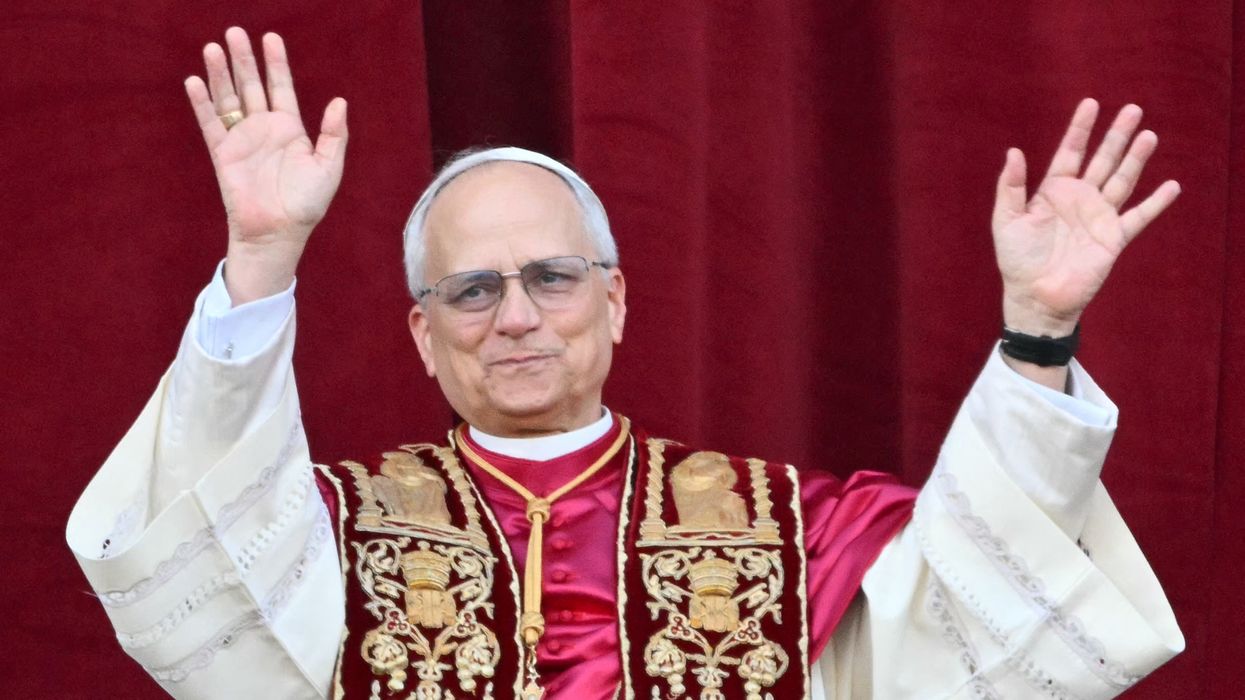WHITE SMOKE rose from the chimney of the Sistine Chapel on Thursday, signalling that cardinals have elected a new leader for the Catholic Church. US Cardinal Robert Prevost was chosen in a surprise decision and has taken the name Leo XIV, becoming the first American pope.
Thousands gathered in St Peter's Square cheered as the smoke appeared and bells rang, confirming the Church has chosen its 267th pope. Pope Leo appeared on the central balcony of St Peter’s Basilica around 70 minutes later, making his first public appearance.
French Cardinal Dominique Mamberti made the announcement with the Latin words "Habemus Papam" ("We have a pope") before introducing Pope Leo to the public.
Aged 69 and originally from Chicago, Leo XIV spent most of his clerical life as a missionary in Peru. He was appointed cardinal only in 2023. He has made few public statements and rarely speaks to the media.
He succeeds Pope Francis, who died last month after serving 12 years as the first Latin American pope. Francis focused on reform and openness, encouraging debate on topics such as women’s ordination and inclusion of LGBT Catholics.
The new pope will be introduced in Latin, followed by his first address and papal blessing. He is expected to take on significant challenges, including global conflicts, fallout from the Church’s sexual abuse crisis, and Vatican financial issues.
Voting process and background
A total of 133 cardinal electors from five continents began voting on Wednesday afternoon in the largest conclave ever held. Their only means of communicating progress was through smoke signals from the Sistine Chapel — black for no decision, white for a successful election.
Two rounds of black smoke were seen before white smoke emerged around 6pm (1600 GMT) on Thursday.
Following tradition, the newly elected pope entered the Room of Tears to prepare, then returned to the Sistine Chapel for the cardinals’ pledge of obedience. He then stepped onto the balcony for the official announcement and delivered his first “Urbi et Orbi” (“To the City and the World”) blessing.
Debates over Church direction
Ahead of the conclave, cardinals were divided between those seeking continuity with Pope Francis’s reformist approach and others who wanted to return to traditional practices. Francis appointed 80 percent of the voting cardinals, but that did not guarantee a like-minded successor.
The conclave was the most international to date, with cardinals from 70 countries. Before voting began, Dean Giovanni Battista Re urged the electors to choose someone who could maintain unity and guide the Church through a complex historical moment.
The Church continues to face declining priest numbers and falling attendance in the West.
The papal inauguration typically occurs within a week of the election. It includes a mass attended by political and religious leaders from around the world. Pope Leo is expected to tour St Peter’s Square in the popemobile and deliver a homily outlining his plans.

















 Kulsuma Aktergetty images
Kulsuma Aktergetty images
Police may probe anti-Israel comments at Glastonbury